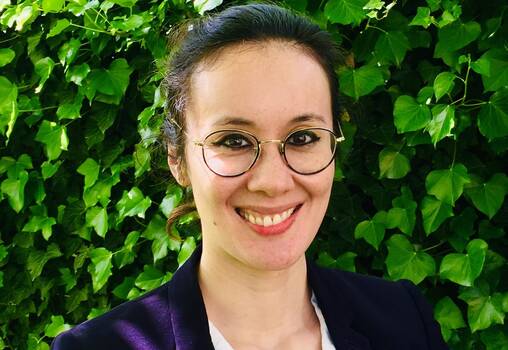Claire Linares
Assistant Professor, IESE Business School

Undertaking a PhD is a strong commitment because it requires hard work and there will be ups and downs. Nevertheless, if you think you might be suited for research, I encourage you to make the leap and see, because in the end it is hard to know what a PhD really is before you are doing it.
Why did you decide to join the HEC Paris PhD Program?
I chose HEC Paris to do my PhD for several reasons. The first one is that the school is a world class institution for research in management, and in particular in marketing. The professors in the marketing department do high quality research that is published in top-tier journals. I knew that I could get very good training. In the first two years of the PhD program, students attend an array of courses to acquire the foundations and methods to do research. Another reason is that I was interested in the research topics of some of the professors and I was eager to have the opportunity to work with them. As the cherry on the cake, I had an emotional attachment to HEC Paris as I did my Master in Management there a few years back.
Can you talk about your research?
I am specialized in marketing and in particular in consumer behavior. I study the psychology of consumers, for instance the decisions they make depending on contexts and why they make them. More specifically, my current focus of research is at the intersection of consumer behavior and face perception. I am interested in what people perceive in others' faces and how this influences their judgments and decisions. In my research, I try to study questions that have practical implications for marketing managers, but also for consumer welfare. Some of my findings also touch upon ethical issues and policy making.
How was your HEC journey?
My PhD journey at HEC Paris was very rich. During the first couple of years, I attended many courses to acquire a general knowledge of research in management and experimental methods. Quickly after that, I started learning to do research hands-on by running experiments under the close supervision and guidance of my thesis advisor. I also had the opportunity to do a six-month research visit at a top North American business school. Overall, I learnt tremendously during my PhD, it was both challenging and very rewarding.
What advice would you give to someone who would like to pursue a PhD?
My first advice would be to talk with PhD students or professors before applying to a PhD program. This will be helpful to have a better grasp of the job of a researcher, both the good and the bad. The second piece of advice is to try to exchange with your future potential advisor before you join the program. The advisor plays an important role in the training and well-being of a PhD student. Undertaking a PhD is a strong commitment because it requires hard work and there will be ups and downs. Nevertheless, if you think you might be suited for research, I encourage you to make the leap and see, because in the end it is hard to know what a PhD really is before you are doing it. Best of luck!
Read the interview of Claire Linares and her advisor Anne-Laure Sellier' s research on "The Smartphone: Not the Behemoth Feared by Business and Researchers"
Claire defended her thesis in 2022 and received in March 2023 the HEC Foundation Award for the Best Doctoral Thesis: "Three essays on consumer social cognition in a technology-rich world".